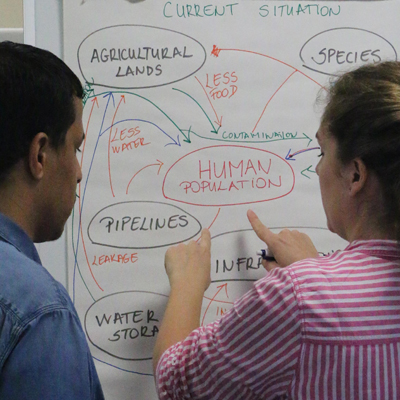Cranfield University and Nissan Technical Centre Europe (NTCE) Cranfield are teaming up on a Knowledge Transfer Partnership (KTP) to develop new features so battery electric vehicles can be easily connected to their surroundings. This technology is known as V2X (vehicle-to-everything). The two-year project, funded by Innovate UK, will transfer academic knowledge on V2X applications and integrate them into electric vehicle design.
V2X uses sensors, cameras and wireless connectivity to enable cars to connect to and communicate with their drivers and surroundings. This could include, in the future, traffic signals, pedestrians, the power grid, another vehicle and road signs. These developments will improve safety and fuel efficiency of the vehicle. And maybe more importantly, they could also contribute to dealing with the intermittency of renewable energy - by acting as mobile batteries for other vehicles, buildings, communities or the power grid around their locations.
Nazmiye Ozkan, Professor of Sustainable Energy Transitions and Head of Centre for Energy Systems and Strategy, is leading the project for Cranfield University. She said: “There is an urgent drive towards net zero, with government commitments to fully decarbonise power by 2035. Electric vehicles could play a significant role in managing the costs of a decarbonised power grid, whilst taking us from A to B.”
Russell Taverner, Vehicle Development Manager at NTCE, said “At the heart of Nissan Ambition 2030 business plan is the goal to achieve carbon neutrality across the company's operations and the life cycle of its products by 2050. This includes the launch of 19 new EVs globally by 2030. The transfer of knowledge from academia will help us to further enhance the charging experience of customers and launch attractive V2X services, which will support the transition to a zero carbon grid.”
Top scoring project in funding round
The project is funded by Innovate UK’s Knowledge Transfer Partnerships (KTP) scheme; with the application from Nissan and Cranfield scoring highest in the round at independent review, rated top of 93 applications submitted to Round 1. Applications are scored on impact, innovation, challenge, and cohesiveness; a strong positive result is an indicator of the long-term validity and potential of the project.
About Knowledge Transfer Partnerships
The Knowledge Transfer Partnership (KTP) scheme is a UK-wide programme that has been helping businesses to innovate and grow for over 45 years. It is a unique and innovative programme that helps organisations gain access to the best UK academic knowledge, expertise, and technology. Through a KTP, businesses form a strategic partnership with an academic institution to develop new products or services, expand markets, and improve efficiency or organisational performance. KTPs can transform organisations, of any size and in any sector, looking to address a core strategic challenge.
A KTP is a three-way partnership between a UK registered business, a UK Knowledge Base (such as Cranfield University) and a suitably qualified graduate (known as the KTP Associate) with the capability to lead a strategic project. Recruitment for the KTP Associate set to deliver the KTP with Nissan Technical Centre Europe Cranfield is now underway.
Cranfield University has a wealth of experience with the KTP scheme. The dedicated team guides you through the entire process: from the initial idea to application preparation and submission, recruitment of the KTP Associate and management of the project throughout its duration. To find out more about KTPs at Cranfield visit our website or email ktp@cranfield.ac.uk.


